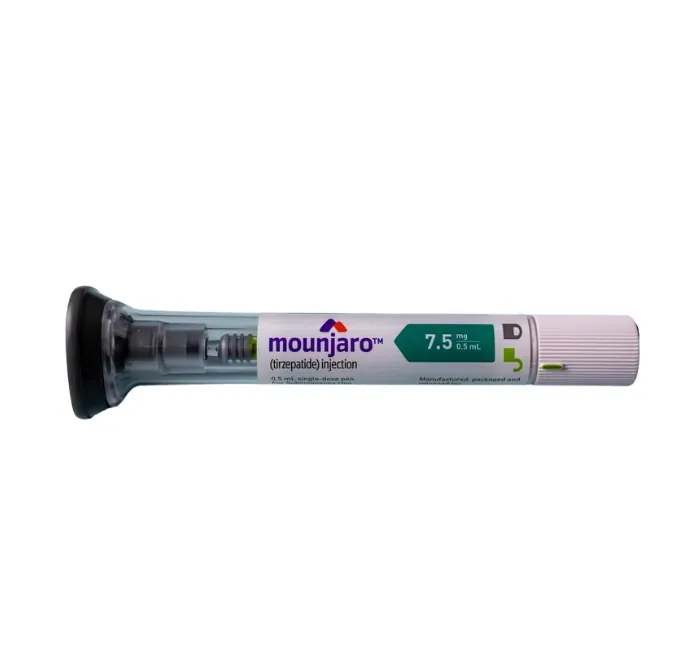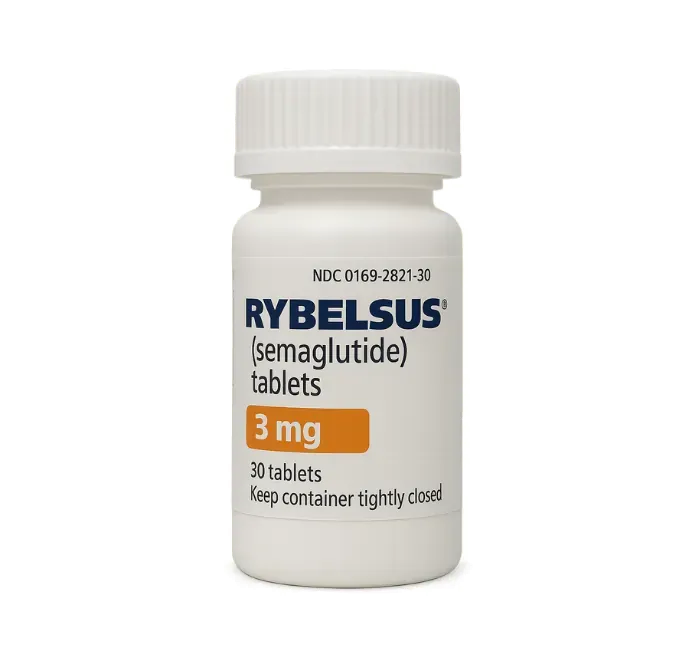
What are GLP-1 medications?
GLP-1 medications are a breakthrough in modern health — helping people lose weight and manage type 2 diabetes more effectively than ever before.
Originally developed to regulate blood sugar in people with diabetes, GLP-1 treatments have been clinically proven to also support significant, sustained weight loss. They work by mimicking a natural hormone in your body that helps control appetite, slow digestion, and regulate blood sugar levels — so you feel fuller, longer and avoid energy crashes.
The benefits of GLP-1 medications:
- Clinically proven to help with weight loss
- Supports better blood sugar control
- Reduces cravings and hunger
- Can lower risk of future health issues
- Backed by decades of research
Find the Right GLP-1 Medication for Your Health Goals
Explore safe, effective options that support weight loss and type 2 diabetes management — all backed by science.
Your questions, answered
Which GLP-1 is best for weight loss?
Several GLP-1 medications are effective for weight loss, but semaglutide (brand names: Wegovy, Ozempic) and tirzepatide (brand name: Mounjaro, Zepbound) are currently considered the most impactful based on clinical trials. Wegovy is FDA-approved specifically for weight management, while Ozempic and Mounjaro are approved for type 2 diabetes but often prescribed off-label for weight loss. The “best” option depends on your health goals, medical history, and what your provider recommends.
Are GLP-1 medications safe?
GLP-1 receptor agonists are generally considered safe and effective when prescribed appropriately. Like all medications, they come with potential side effects—most commonly nausea, vomiting, and gastrointestinal discomfort. Serious side effects are rare but possible. It's important to work closely with your healthcare provider to ensure the medication is right for you and to monitor your response.
Which GLP-1 is best for PCOS?
While GLP-1 medications are not FDA-approved specifically for polycystic ovary syndrome (PCOS), they may be helpful in managing some symptoms, especially insulin resistance and weight gain. Semaglutide (Ozempic or Wegovy) and liraglutide (Saxenda or Victoza) have shown promising results in small studies for improving metabolic markers in PCOS. If you have PCOS and are struggling with weight or insulin resistance, a GLP-1 may be worth discussing with your provider.
Can GLP-1 medications cause cancer?
There is no conclusive evidence linking GLP-1 medications to cancer in humans. However, in early animal studies, some GLP-1 drugs were associated with thyroid C-cell tumors. Because of this, they are not recommended for people with a personal or family history of medullary thyroid carcinoma or multiple endocrine neoplasia type 2 (MEN2). Your healthcare provider will assess your individual risk before prescribing.
Are GLP-1s covered by Medicare?
Medicare Part D may cover GLP-1 medications if they’re prescribed for type 2 diabetes. However, Medicare typically does not cover weight loss medications, even if a GLP-1 is being used for that purpose. Check your Part D formulary or speak with your plan administrator for specific details. Universal Drugstore does not bill insurance directly so check with your provider beforehand.
How do GLP-1 medications work?
GLP-1 receptor agonists mimic a natural hormone that helps regulate blood sugar and appetite. They:
- Increase insulin secretion in response to meals
- Suppress glucagon, a hormone that raises blood sugar
- Slow gastric emptying, which helps you feel full longer
- Reduce appetite, often leading to weight loss
- This combination makes them effective for both diabetes management and weight reduction
Why do GLP-1 agonists cause nausea?
Nausea is a common side effect when starting GLP-1 medications because they slow digestion and affect appetite signals in the brain. As your body adjusts, the nausea often decreases over time. Starting with a low dose and gradually increasing it can help reduce this side effect.
When should I start a GLP-1 medication?
A GLP-1 medication might be recommended if you have:
- Type 2 diabetes and aren’t meeting your blood sugar goals
- Struggled with weight loss despite lifestyle changes
- Conditions like insulin resistance, PCOS, or prediabetes, under guidance of your doctor
Always consult with a healthcare provider to determine the right timing and approach for your specific health needs.
How do GLP-1s improve insulin resistance?
GLP-1 medications enhance the body’s sensitivity to insulin by improving glucose uptake and lowering blood sugar levels after meals. They reduce insulin resistance by:
- Stimulating insulin when it’s needed
- Decreasing glucagon levels
- Aiding in weight loss, which itself improves insulin sensitivity
This makes them especially helpful for people with type 2 diabetes, PCOS, and metabolic syndrome.
What’s the difference between Ozempic, Wegovy, Mounjaro, and Saxenda?
All four medications belong to the GLP-1 category, but they have different uses and active ingredients:
- Ozempic (semaglutide): Approved for type 2 diabetes, often used off-label for weight loss.
- Wegovy (semaglutide): Specifically approved for weight management.
- Mounjaro (tirzepatide): Approved for type 2 diabetes; combines GLP-1 and GIP receptor activity and shows strong weight loss effects.
- Saxenda (liraglutide): Approved for chronic weight management; requires daily injections compared to weekly with others.
Choosing the right one depends on your medical goals, insurance coverage, and personal preference.
Do I need a prescription for GLP-1 medications?
Yes, all GLP-1 medications require a valid prescription from a licensed healthcare provider. At Universal Drugstore, we can only fulfill orders for GLP-1 medications once a prescription has been received and verified.
Can I get GLP-1 medications without insurance?
Yes. If insurance doesn't cover your GLP-1 medication—or if you’re uninsured—you can purchase it privately. Universal Drugstore offers affordable pricing on brand name GLP-1 medication, often at a fraction of U.S. retail costs, making GLP-1 therapy more accessible even without insurance coverage.
How long do I need to stay on a GLP-1?
GLP-1 medications are typically intended for long-term use. Whether prescribed for diabetes or weight management, they help control chronic conditions that often require ongoing treatment. Stopping a GLP-1 medication may result in weight regain or a return of high blood sugar levels. Your healthcare provider will help you develop a long-term plan that's right for you.
Do GLP-1 medications need to be injected?
Yes, most GLP-1 medications are delivered through self-injection using a pre-filled, easy-to-use pen. The needles are very thin, and most people find the process simple and minimally uncomfortable. Some medications, like Rybelsus, offer an oral (pill) version, but injections are generally preferred for their greater effectiveness.






